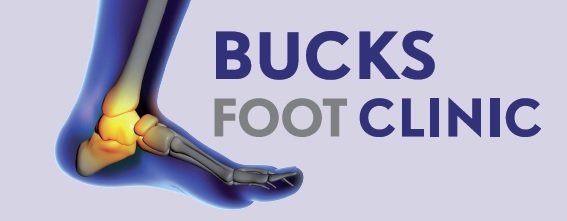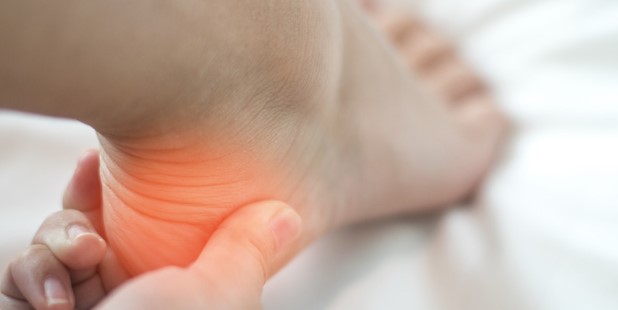If you’ve ever experienced that sharp, stabbing pain in your heel as you take your first steps out of bed, you’re not alone. Reason for foot heel pain in the morning is often attributed to a condition known as plantar fasciitis, although other factors can contribute as well. In this blog, we’ll delve into heel pain treatments and provide tips on how to cure your heel pain fast.
Understanding Morning Heel Pain
Causes and Prevalence
Plantar Fasciitis: Plantar fasciitis is a leading cause of morning heel pain. Statistics reveal that it affects approximately 10% of individuals in the UK at some point in their lives. This condition arises when the plantar fascia, a thick band of tissue supporting the arch of the foot, becomes inflamed and irritated.
Achilles Tendinitis: Another reason for foot heel pain is Achilles tendinitis, which can also contribute to discomfort in the morning. This condition entails inflammation of the Achilles tendon, which links the calf muscles to the heel bone. Statistics indicate that Achilles tendinitis affects a significant number of people in the UK each year.
Heel Spurs: Heel spurs, bony protrusions that can form on the underside of the heel bone, are another potential cause of morning heel pain. While not everyone with heel spurs experiences pain, statistics suggest that they are relatively common among individuals with heel discomfort.
Symptoms and Impact
Morning heel pain is characterised by a sharp, stabbing sensation in the heel, particularly with the first steps of the day. This discomfort can gradually improve as you move around but may return after periods of rest. Understanding the underlying causes and symptoms is essential for effectively addressing morning heel pain and finding ways to cure heel pain fast.
Strategies for Easing Morning Heel Pain
Heel Pain Treatment Options
- Physical Therapy: Statistics show that physical therapy is a commonly sought treatment for morning heel pain in the UK. Physical therapists can design personalised exercise programs to strengthen the muscles supporting the foot and improve flexibility. These exercises can target the specific reasons for foot heel pain, such as plantar fasciitis or Achilles tendinitis.
- Orthotic Inserts: Many individuals in the UK turn to orthotic inserts as part of their heel pain treatment regimen. Statistics indicate that these shoe inserts can provide relief by supporting the arch of the foot and alleviating pressure on the plantar fascia. Doctors often recommend these stretches for individuals with overpronation or flat feet, conditions that can contribute to heel pain.
- Medications: In some cases, medications may be prescribed to manage heel pain, particularly when it is associated with inflammation. Nonsteroidal anti-inflammatory drugs (NSAIDs) are commonly recommended. However, it’s essential to consult with a healthcare provider before using any medication, as they can advise on the best options based on the specific reason for foot heel pain.
Strategies for Easing Morning Heel Pain
- Stretching: Firstly, engaging in regular stretching exercises can be highly effective in alleviating morning heel pain. Statistics show that simple stretches like calf stretches, Achilles tendon stretches, and plantar fascia stretches can significantly reduce discomfort. Perform these stretches gently and consistently.
- Footwear Choices: Statistics reveal that selecting appropriate footwear is crucial for managing heel pain. Individuals in the UK should opt for shoes with good arch support, cushioning, and shock absorption. Avoiding high heels and shoes with inadequate support can help reduce the impact on the heels.
- Rest and Ice: Lastly, resting the affected foot and applying ice to the heel can provide immediate relief from morning heel pain, especially when it results from activities that put excess strain on the feet. Statistics indicate that regular icing can reduce inflammation and soothe discomfort.
Remember that the effectiveness of these strategies may vary depending on the specific reason for foot heel pain. Consulting with a healthcare provider, such as Bucksfoot Clinic, we can help you with comprehensive treatment plans and tips on how to cure your heel pain fast.
Conclusion
In conclusion, you can effectively manage morning heel pain with the right strategies. Stretching exercises, proper footwear, and ice massages are just a few ways to alleviate discomfort. If your heel pain persists or worsens, don’t hesitate to seek professional guidance from experts at clinics like Bucksfoot Clinic. At Bucksfoot Clinic, we understand the debilitating impact of morning heel pain on your daily life.
Moreover, our dedicated team of specialists is here to provide you with expert care and personalised treatment solutions. Thus, by taking proactive steps to address your morning heel pain, you can enjoy a more comfortable start to your day and maintain an active lifestyle. So trust in our experience and commitment to your well-being, and take the first step towards a pain-free morning. Visit our website to learn more.
FAQs
Is morning heel pain always due to plantar fasciitis?
While plantar fasciitis is a common cause, other conditions like Achilles tendinitis or heel spurs can also lead to morning heel pain. Consulting a healthcare professional for an accurate diagnosis is advisable.
When should I seek professional help for my morning heel pain?
If your heel pain persists for more than a few weeks despite home remedies, or if it significantly impairs your daily activities, it’s advisable to consult a podiatrist or foot specialist.
Can wearing high heels contribute to morning heel pain?
Yes, regularly wearing high heels can strain the plantar fascia and contribute to heel pain. Opt for supportive footwear with proper arch support to reduce the risk.
Are there surgical options for treating morning heel pain?
In severe cases that do not respond to conservative treatments, you may consider surgical options like plantar fascia release. However, medical professionals typically reserve these treatments for a small percentage of cases.

